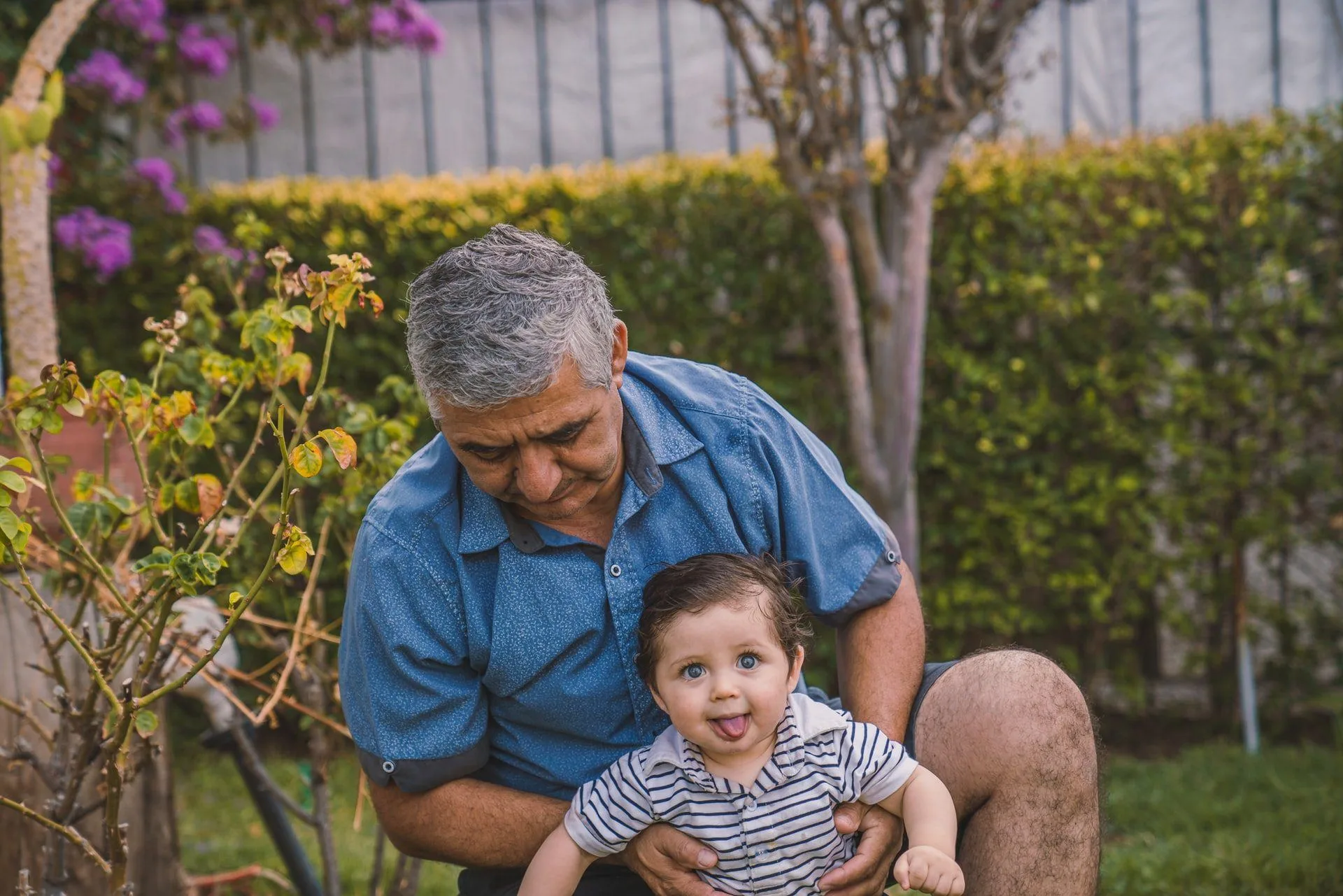If you are a grandparent whose child has recently received a diagnosis for autism – you are probably going through a whirlwind of emotions. But, don’t worry! You’ve come to the right place. If you’ve ever lived in one of the faith-based senior living communities – you’ll know that faith is the first step to handle such difficult situations.
In this guide, we help you navigate your situation better, so you become more understanding. You will also have access to tools, tips, and tricks that will help you to raise a healthy grandchild who can enjoy a better quality of life.
Did you know that according to CDC, 1 out of 59 kids in the US get diagnosed with autism? About 1/3rd of those autistic teens remain non-verbal, and the other 1/3rd have some kind of intellectual disability. So, don’t worry. You’re not alone.
On that note, let’s take a look at how you, as a grandparent can raise a healthy child.
Reactions to the diagnosis
The most reaction upon hearing the news of diagnosis is that of a shock. Other than shock, you may also go through a spectrum of emotions such as embarrassment, anger, blame, sadness, etc.
Other common reactions include confusion, guilt, fear, denial, disappointment, powerlessness, etc. remember -that all of these emotions are completely normal. You have to just give yourself enough time to get over that initial reaction.
Instead of fearing how the child is going to make it into adulthood, or how he’s going to handle studies, job, his whole future – it’s time to get into the doing mode.

Photo by Gita Krishnamurti on Unsplash
Understand Your Role As A Grandparent
After the initial shock and overwhelm – you should get down to focusing on your role and how you’re going to care for your child.
The IAN (Interactive Autism Network) conducted a survey in 2009 which consisted of 2,600 grandparents whose children received a similar diagnosis. The findings of the survey might help you better understand your role as a grandparent to an autistic child, so you can better care for them emotionally, financially, and economically
- 72% of the participants said that they played some degree of role in the course of treatment and underlying decision.
- Over 7% of them said that they had to combine the household of their grandchild to better manage everything that’s involved in caring for the child.
- 14% of them moved closer to the child; not in the same house, so they could care for their grandchild better.
- 1 in every 4 grandparents said that they spent $99/month to support their child’s needs. Some even contributed $400 – $1,000 every month.
- 1 in every 5 of them offered regular transportation to meet their child’s needs.
- 34% of grandparents said that they care for their grandchildren once every week.
Support Your Grandchild
One of the most troublesome things for grandparents is worrying about their child as they’re suddenly faced with a lot of stress financially, emotionally, and economically.

Photo by Alvaro Reyes on Unsplash
In such difficult times, grandparents often struggle with how they can support both their child and grandchild. Here are some ways in which you can do that to ensure the health and well-being of everyone
- Offer to babysit your autistic grandchild. It could be for once every week or a couple of nights in a month. In this way, your child could get some alone/me time and take a break from the often troubling difficulties.
- Education is knowledge. So, as a responsible grandparent, one of the best things you can do to uplift your grandchild’s quality of life and improve longevity is to educate yourself about the condition. Once you know better, you can educate those extended families and relatives. You can do that by reading books on autism, attending seminars, etc.
- Stay in regular touch with your family to keep tabs on the health progress of your grandchild.
- It may not be possible if you’re living in one of the assisted living communities. But, if you can afford it, it’s always good to accompany the family with their therapy appointments and sessions. Learn different methods, techniques, and ways during those appointments on how to care for and interact with your grandchild.
Become an Advocate
As a grandparent, always remember that you are in a special and unique position to join in on the fight against social stigma around autism.
When you come from a place of power and responsibility, you should have no trouble disclosing that your grandchild received a diagnosis for autism. This could even encourage others to open up and ask questions.
When you advocate for positive change and encouragement, you help others become more responsible and aware of the disorder.
One way to become an advocate is to meet with, write, or talk to legislators, school teachers, administrators, and government officials. Anyone involved in housing, public transportation, and education is a good place.
People often listen more to grandparents and take it seriously what they have to say. So, use that unique position of yours.
Take Good Care of Yourself
Looking after others can become exhausting; especially during old age. Therefore, you must strike a balance between the needs of others and your personal needs. Here are some ways to do that :
- Devote time to stay healthy – both physically and mentally
- Join a support group for grandparents
- Ask for professional help, if needed
- Take a break now and then
- Do something new to rejuvenate yourself
- Talk to a counsellor or a social worker
- Explore new hobbies and activities
Bottom Line
It takes time, effort, and dedication to become a responsible grandparent. Even if you made it till the end of this post, it shows that you care for your children and are a responsible parent.

Who Is The Author?

Holly Klame
Holly Klamer is a pet lover who owns a dog and loves to write about everything related to pets. She is a frequent writer and contributor to top online pet publications and blogs, including Faith-Based Assisted Living and Pet-Friendly Senior Living.



![women [longevity live]](https://longevitylive.com/wp-content/uploads/2020/01/photo-of-women-walking-down-the-street-1116984-100x100.jpg)










